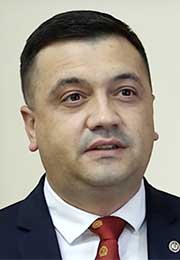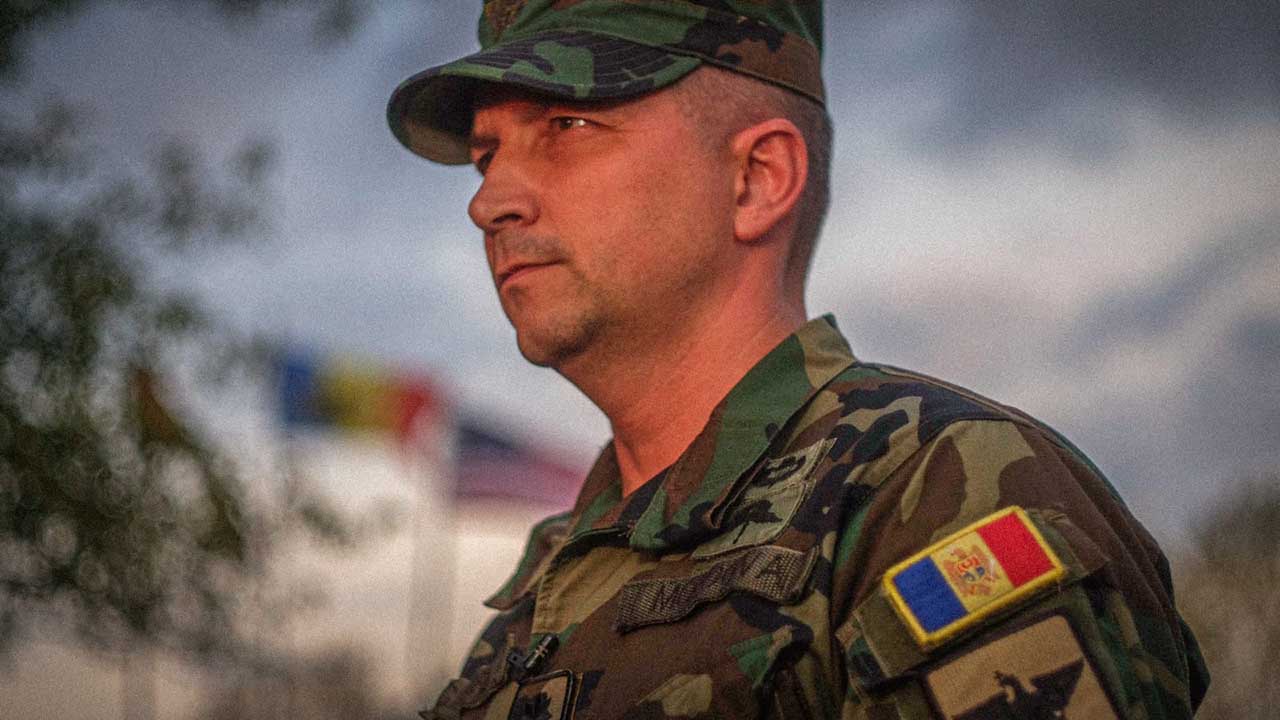Part 4
Strain from Ukrainian Refugees
Moldovan aid organizations fear aid shortages as Ukrainian refugee numbers remain high.
Like a good neighbor, the tiny nation of Moldova answered Ukraine’s calls for help, but UNHCR, the U.N. Refugee Agency, warned Friday countries like Moldova and Poland “may be forced to cut essential activities” without drastically increased funding.
Transcript
For a year and a half, Vera Rashkovskiya’s family has been split apart. The three sisters Vera, Nadya and Lyubov—Faith, Hope and Love in Ukrainian—fled the country with their daughters, nieces and grandchildren, while their brothers and sons stayed home in Odesa.
They are living in what was once a school for kids with autism in the Moldovan capital Chisinau. Vera says the outpouring of support has been overwhelming and has literally saved her life.
Vera Rashkovskiya:
“I was at the hospital with double pneumonia. Everything was for free, I didn’t pay a penny. I even wanted to give them chocolate, but the nurses refused.”
Her granddaughter Amina says she’s happy. And her daughter Maryna says she sees other Ukrainian faces on occasion.
Maryna, Ukrainian refugee:
“There was a girl at the Red Cross from Odesa. I knew her classmate.”
But, refugees like this woman, Vira, they say they miss home.
Vera Rashkovskiya:
 Rashkovskiya
“It’s very painful. I lived there for so many years. I didn’t work anymore, so I only had to live. And now in my age, I must flee. But we’re lucky that people welcomed us so warmly here. We’ve met very nice people here, like relatives.”
Rashkovskiya
“It’s very painful. I lived there for so many years. I didn’t work anymore, so I only had to live. And now in my age, I must flee. But we’re lucky that people welcomed us so warmly here. We’ve met very nice people here, like relatives.”
Like the Rashkovskiya family, more than one and a half million Ukrainians sought refuge from the war in neighboring Moldova.
Adrian Efros, Moldovan Minister of Internal Affairs:
“This is just a small portion of the refugees.
Carla Babb, VOA News:
And they just kept coming and coming?
Adrian Efros, Moldovan Minister of Internal Affairs:
Yes. Coming and coming.”
Interior Minister Adrian Efros was running Moldova’s crisis management center in February of 2022, when Russia invaded Ukraine.
Adrian Efros, Moldovan Minister of Internal Affairs:
 Efros
“When the war started, nobody was prepared to face this big influx of refugees. And it was not just a problem to let them in. But what to do with them next – they need shelter. They need food, they need accommodation and so on.”
Efros
“When the war started, nobody was prepared to face this big influx of refugees. And it was not just a problem to let them in. But what to do with them next – they need shelter. They need food, they need accommodation and so on.”
While the number of refugees entering Moldova has slowed since the war began, Efros says about 100,000 Ukrainian refugees still live in the country. That’s nearly 5% of Moldova’s total population.
Adrian Efros: “So the demand is still very high. and we have this pendulum movement of refugees to European countries and back.”
Dozens of refugee centers popped up across Moldova, as one of Europe’s poorest nations absorbed what remains the continent’s largest Ukrainian refugee population per capita. This center used to be a Moldovan film studio.
And the nonprofit Moldova for Peace still uses the center to hand out essentials to Ukrainians.
Tudor Arnaut is one of the aid organization’s members.
Tudor Arnaut, Moldova for Peace:
 Arnaut
“So now people are starting to think that we don’t have refugees in Moldova already. But this is a myth. Because Ukrainians refugees are already integrated in the society, they already have jobs, they have apartments, so it’s very hard to see a group of refugees.”
Arnaut
“So now people are starting to think that we don’t have refugees in Moldova already. But this is a myth. Because Ukrainians refugees are already integrated in the society, they already have jobs, they have apartments, so it’s very hard to see a group of refugees.”
Arnaut says this warehouse was especially essential last winter for kids who needed warm clothes that fit them. But as he gears up for this winter, he worries he might not be able to keep warehouses like this one stocked.
Tudor Arnaut: “Some of the big donors are already leaving Moldova. And now it’s harder and harder to find any donors that will support making the warehouse exist.”
It’s a call for help that U.S. ambassador to Moldova Kent Logsdon says the international community must not neglect as the weeks and months drag on.
Kent Logsdon, U.S. Ambassador to Moldova:
“We are absolutely committed to helping Moldova do everything possible to take care of refugees here.”
“The United States, I think we’re up to about $123 million that we’ve given, specifically for the refugees here in Moldova to support the international community’s efforts.”
The women and children at the autism center say they want to return to Ukraine when the war is over so they will no longer need Moldova’s generous help. But an end to the Russia-Ukraine conflict seems unlikely any time soon.



